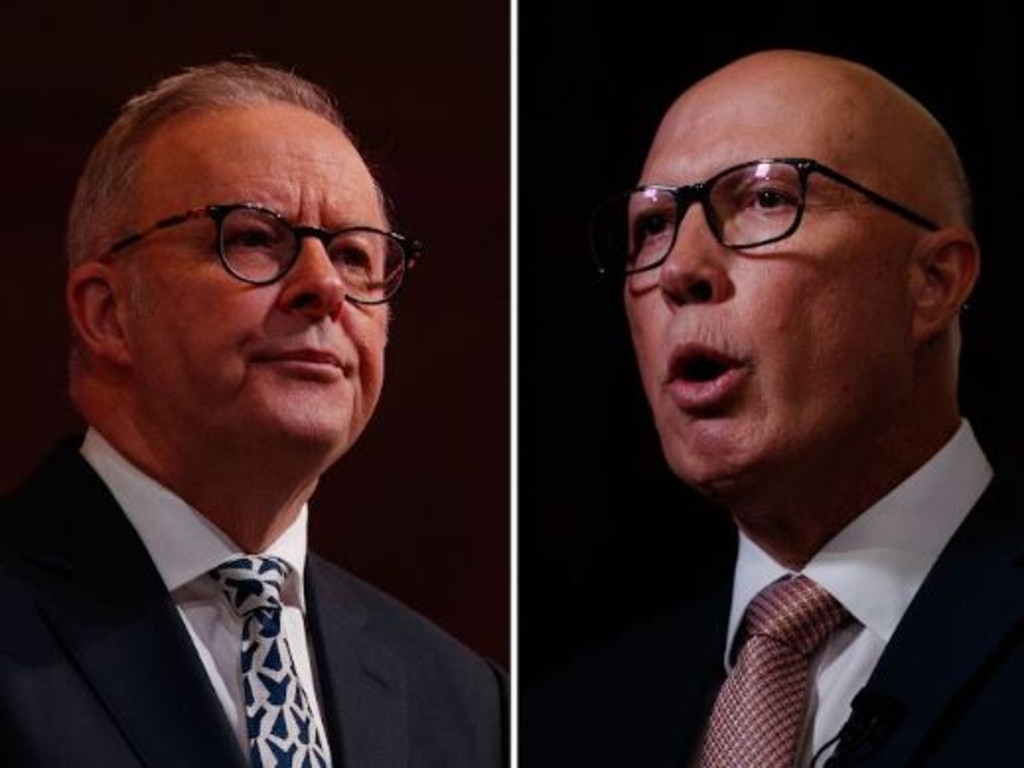Australia’s big-spending Covid hangover, poor fiscal habits and aversion to bold economic reforms are making the country less competitive, expensive and more reliant on higher migration and trade with unreliable countries like China.
When the Prime Minister and Opposition Leader stand-up at their May 3 election campaign launches in Perth and Sydney on Sunday, expect the usual partisan commentary and stinging lines explaining why the other major party is going to ruin Australia.
While more announcements will be made in their launch speeches, Albanese and Dutton on Saturday night revealed two centrepiece policies.
Labor is going to spend another $10bn to woo first homebuyers and try to achieve its 1.2 million new homes by mid-2029 target (taking the current federal government tally to a whopping $43bn).
The Coalition is reviving a 2022-23 “cost-of-living tax offset” promising more than 10 million Australians tax relief of up to $1200 in their 2025-26 tax returns.
The Labor policy, geared around reserving 100,000 new homes for first homebuyers and helping them get loans easier, is going to drive-up demand (and hopes) at a time when there simply are not enough houses to go around.
The Coalition policy, which will see taxpayers earning up to $144,000 get some tax relief from August next year, is what some business leaders and economists will describe as failing to confront or tackle substantive tax reform.
If Labor and the Coalition keep avoiding real responses to the structural challenges facing Australia, the more grumpy voters will seek alternatives and shift their votes to minor parties and independents.
Since the Coalition immediately matched Labor’s $8.5bn Medicare announcement in February, the election spend-o-meter for both sides has been running hot.
With three-weeks left to go in a campaign overshadowed by Donald Trump, here’s hoping there is enough time for the major party leaders to have a crack.
But don’t hold your breath.






Anthony Albanese and Peter Dutton are proving unwilling to pursue reforms that would move the country away from temporary sugar hits and government-subsidised lifelines becoming permanent features of the economy.